News - University of Puerto Rico, Mayaguez Campus
U.S. High School Students in SEES Intern Program Share Experiences Using GLOBE Observer Mosquito Habitat Mapper
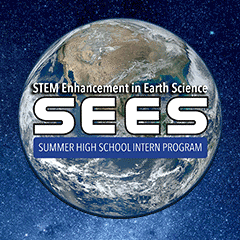
U.S. high school students participating in the NASA Texas Space Grant Consortium (TSGC) Summer Enhancement in Earth Science (SEES) internship program are sharing their research experiences using the GLOBE Observer Mosquito Habitat Mapper via GLOBE’s “Guest Scientist Blog.” These virtual internships are part of a collaboration between GLOBE Mission Mosquito and SEES.
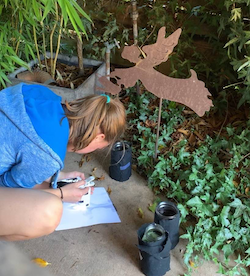
SEES Mosquito Habitat Mapper intern Clara U., a student from Washington, shares her research experience in “Mosquito Mappers – A Collaborative Research Experience.”
“Something that has fascinated me in the research I have done so far is the vast impact that human activity has on the distribution of mosquito communities. Globalization and human travel are thought to be responsible for introducing many mosquito-borne diseases to unlikely areas, for example, spreading the Culex tarsalis, a vector of western equine encephalitis, to Washington State.”
To read the full story, click here.
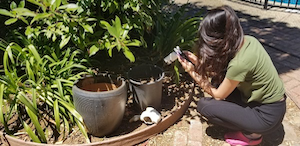
SEES Mosquito Habitat Mapper intern Thien-Nha T., a student from California, shares her experience in: “The Frustrations of Fieldwork and the Rewards of Collaborative Science.”
“Before this project, I never ever imagined I would be interested in studying any type of bugs, much less mosquitoes -- my itch-causing nemesis. However, the more I realized how interconnected these bugs are with the rest of the world and even my own life, the more I saw their importance.”
To read the full story, click here.
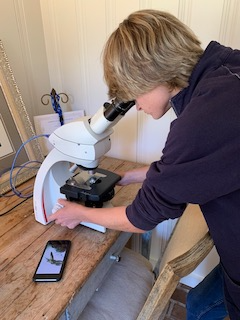
SEES Mosquito Habitat Mapper intern Parker L., a student from Texas, shares his experience in “Effectiveness of Eco-friendly Botanicals in Repelling Mosquitoes from Container Oviposition Sites.”
“I am fascinated at how effectively Aedes albopictus has expanded beyond its historical geographical origins in Asia, sticking its proboscis into Texas along with every continent across the globe except Antarctica. This invasive mosquito, which serves as a vector for dengue and chikungunya, has been enormously successful in utilizing alternative breeding containers to supplement its natural oviposition sites.”
To read the full story, click here.
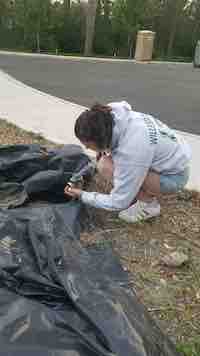
SEES Mosquito Habitat Mapper Intern Maia W., a student from Washington, shares her experience in: “Dark, Warm, and Safe -- Productive Mosquito Larvae Habitats Found on Urban Construction Sites.”
“As part of our field research, SEES interns identify local potential mosquito breeding habitats. As I live in an area that is cold and rainy most of the year, I did not anticipate finding any larvae, and when I did find some, it was not in the area I expected. Rather than finding larvae in a puddle deep in a forest, I found it right around the corner from my home at a construction site.”
To ready the full story, click here.
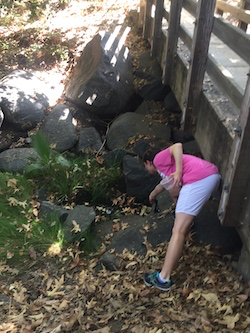
SEES Mosquito Habitat Mapper Intern Lindsay W., a student from California, share her experience in “Mosquito Larvae Hide and Seek in a Chapparal Ecosystem.”
“California has recently emerged from a multi-year drought, but I live at the edge of a town in the chaparral where water is typically scarce. I often travel miles by car to find potential mosquito habitats, only to find no larvae in those water sources. I eventually contacted Vector Control in hopes that they could direct me to potential breeding sites, and they sent me a few locations. As of yet, most sites I’ve visited have had water and no mosquitoes. However, one site, Aubrey Pond in Old Poway, had neither mosquitoes nor water. Possibly this condition is the result of the drought, when many ornamental ponds and fountains were drained.”
To read the full story, click here.
To read other recent STEM Professional/Guest Scientist blogs, click here. The blog is an online collaborative effort where scientists associated with GLOBE post their thoughts, comments, and philosophies about a variety of science topics. GLOBE strongly encourages positive and productive discussions to further advance the scientific understanding of all involved with The GLOBE Program.
type: globe-newsNews origin: GLOBE Implementation Office





